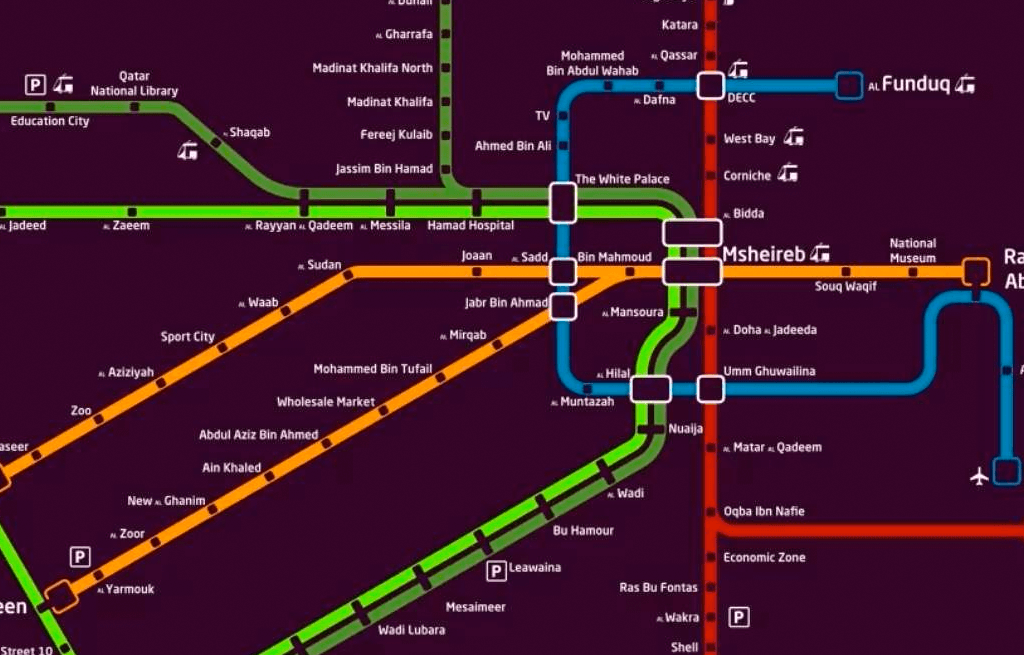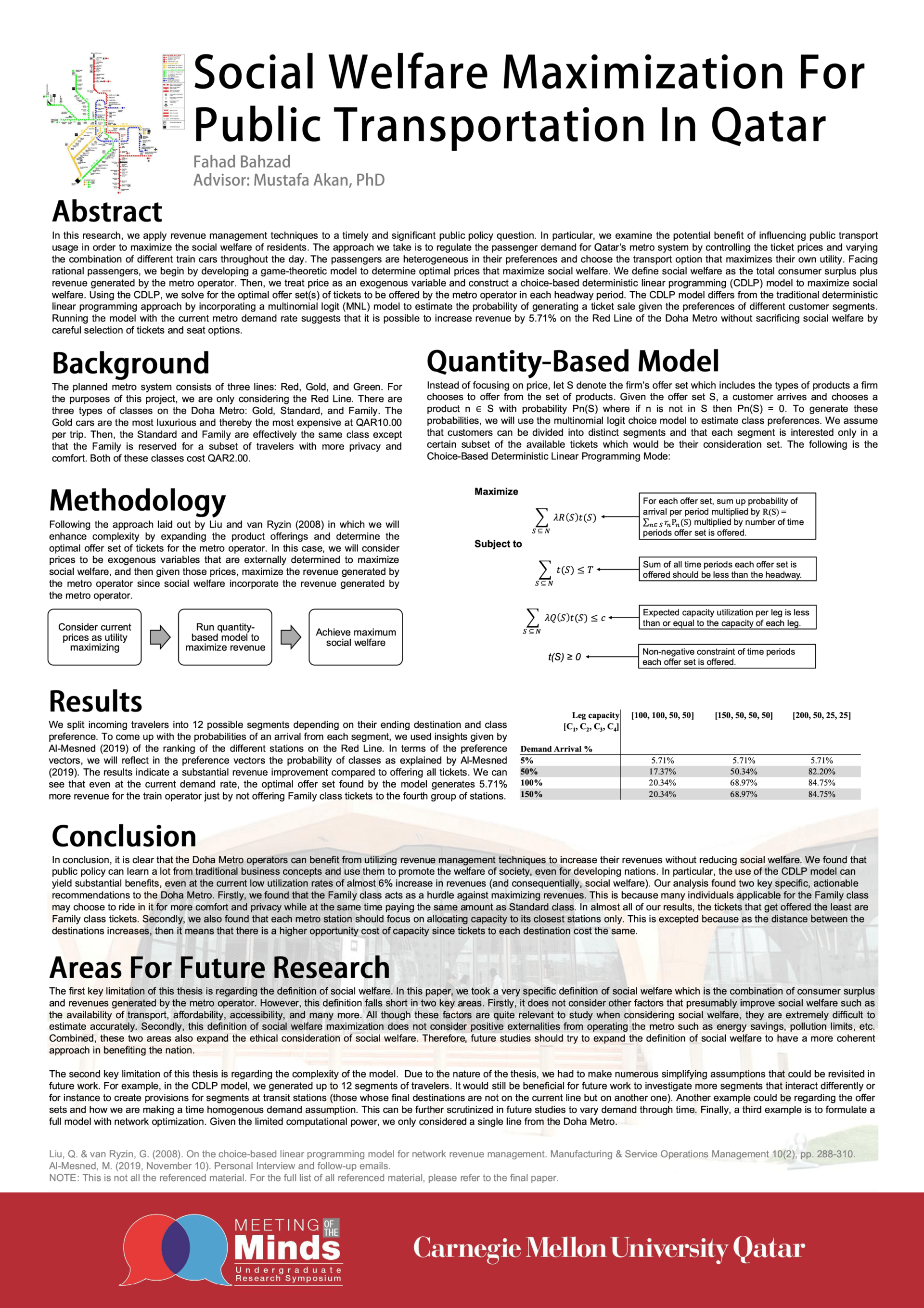In this research, we apply revenue management techniques to a timely and significant public policy question. In particular, we examine the potential benefit of influencing public transport usage in order to maximize the social welfare of residents. The approach we take is to regulate the passenger demand for Qatar’s metro system by controlling the ticket prices and varying the combination of different train cars throughout the day. The passengers are heterogenous in their preferences and choose the transport option that maximizes their own utility. Facing rational passengers, we begin by developing a game-theoretic model to determine optimal prices that maximize social welfare. We define social welfare as the total consumer surplus plus revenue generated by the metro operator. Then, we treat price as an exogenous variable and construct a choice-based deterministic linear programming (CDLP) model to maximize social welfare. Using the CDLP, we solve for the optimal offer set(s) of tickets to be offered by the metro operator in each headway period. The CDLP model differs from the traditional deterministic linear programming approach by incorporating a multinomial logit (MNL) model to estimate the probability of generating a ticket sale given the preferences of different customer segments. Running the model with the current metro demand rate suggests that it is possible to increase revenue by 5.71% on the Red Line of the Doha Metro without sacrificing social welfare by careful selection of tickets and seat options.



